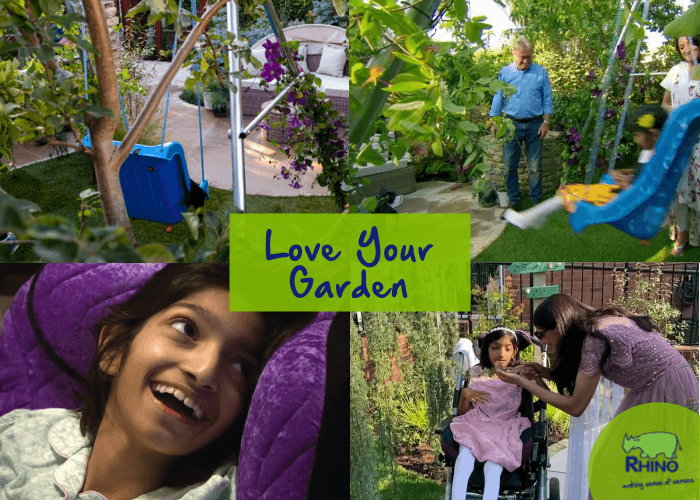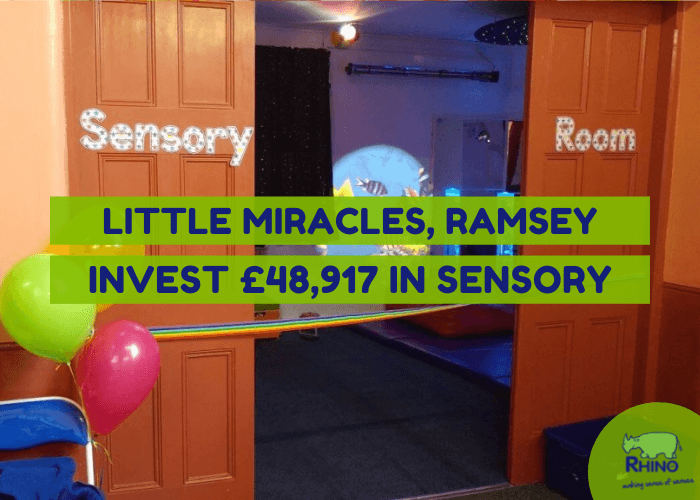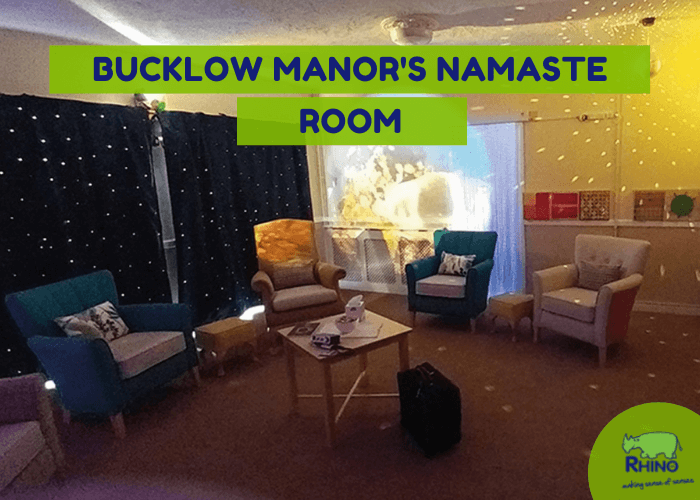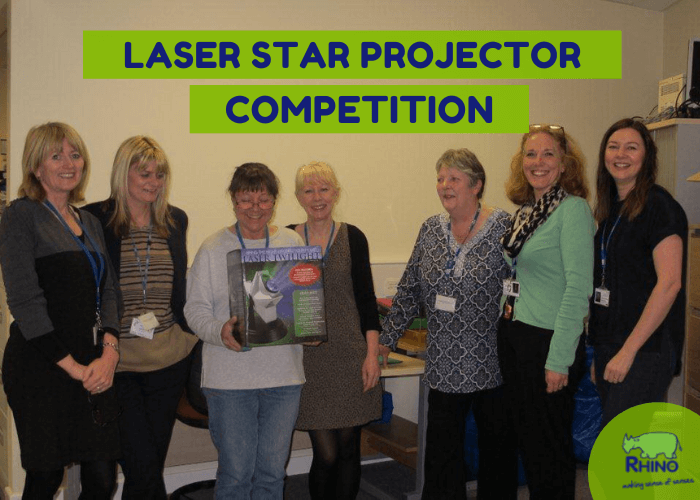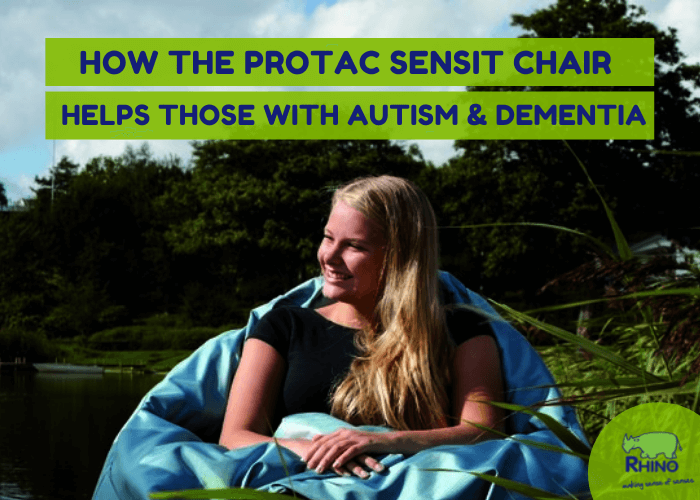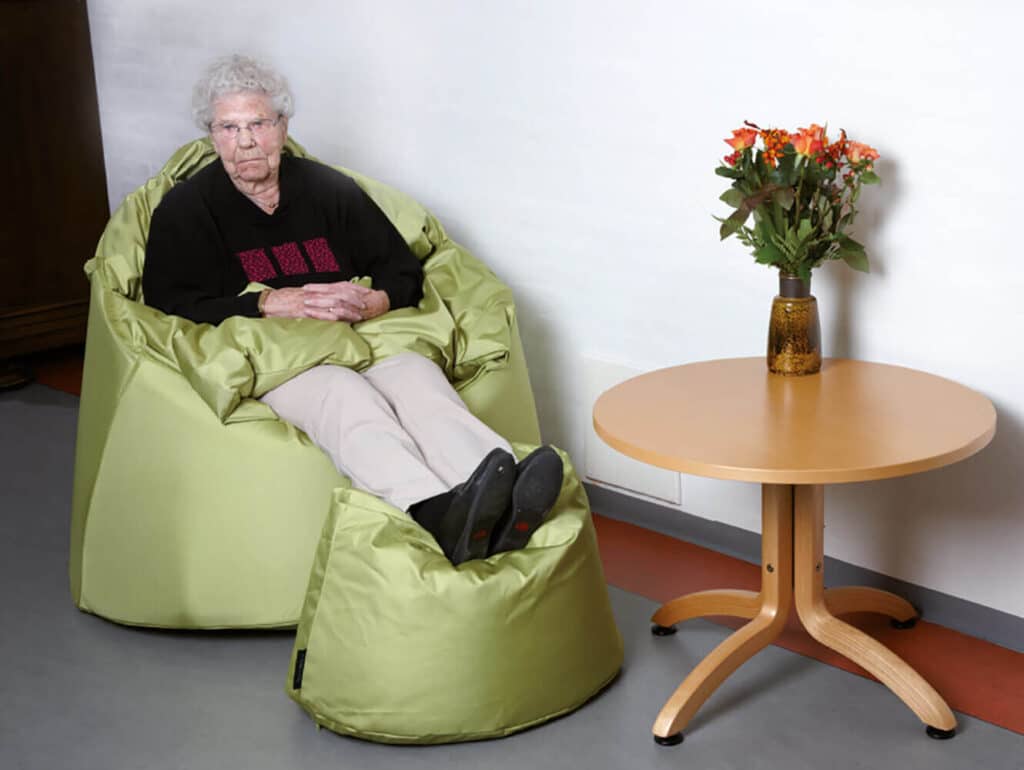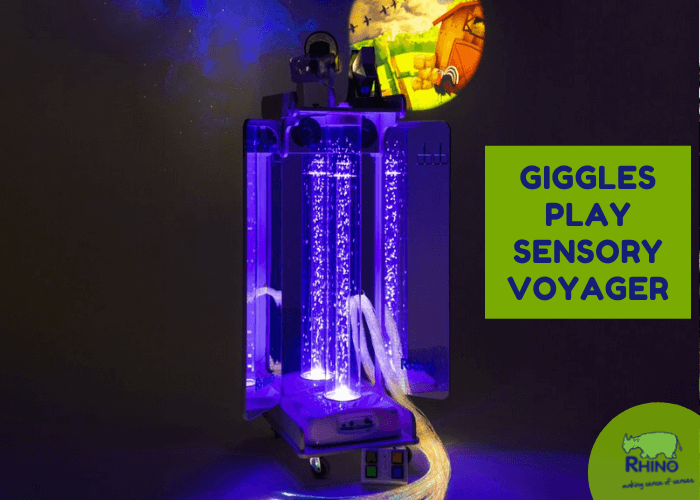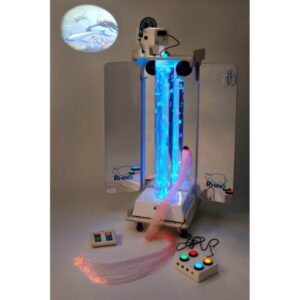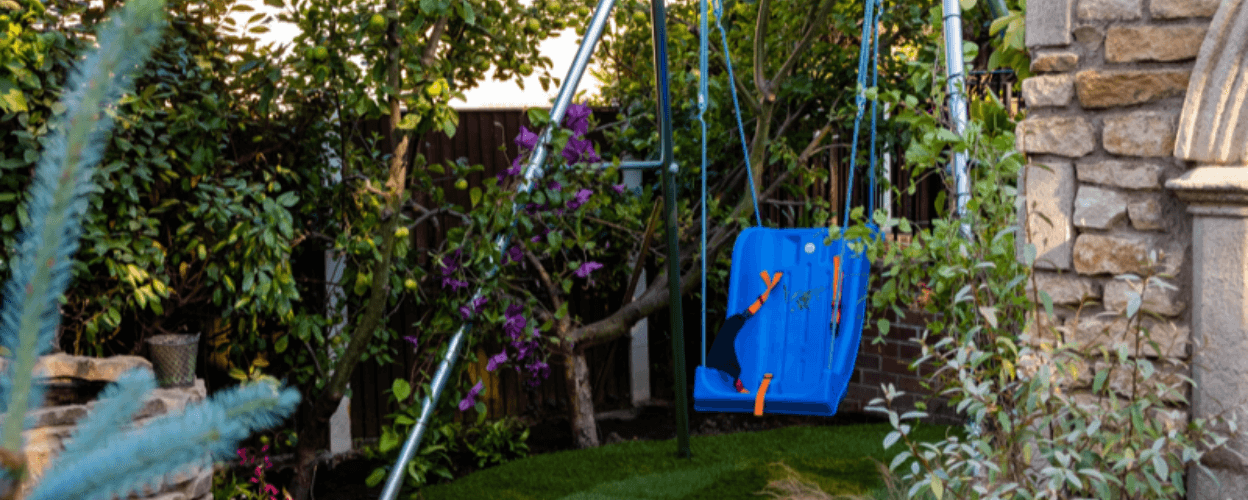
Just before Christmas, a special episode of Alan Titchmarsh’s Love Your Garden aired on ITV. In the episode, Alan and his top team of horticulturalists create a magical sensory garden for Amelia – a nine-year-old girl with cerebral palsy. Our team of sensory experts were able to get involved with the project, offering advice, support, and a very special swing.

Amelia’s Story
Because of her condition, Amelia is regularly too ill to leave the house, which means she doesn’t get to explore her senses in nature as much as she’d like to. Her mum, Shabnam, describes how difficult this can be for Amelia as she loves being outside and in nature.
Inspired by Amelia’s story, Alan and his team started designing a magical sensory garden for her and her family to enjoy. An accessible outdoor space where Amelia would have the opportunity to freely explore her senses.
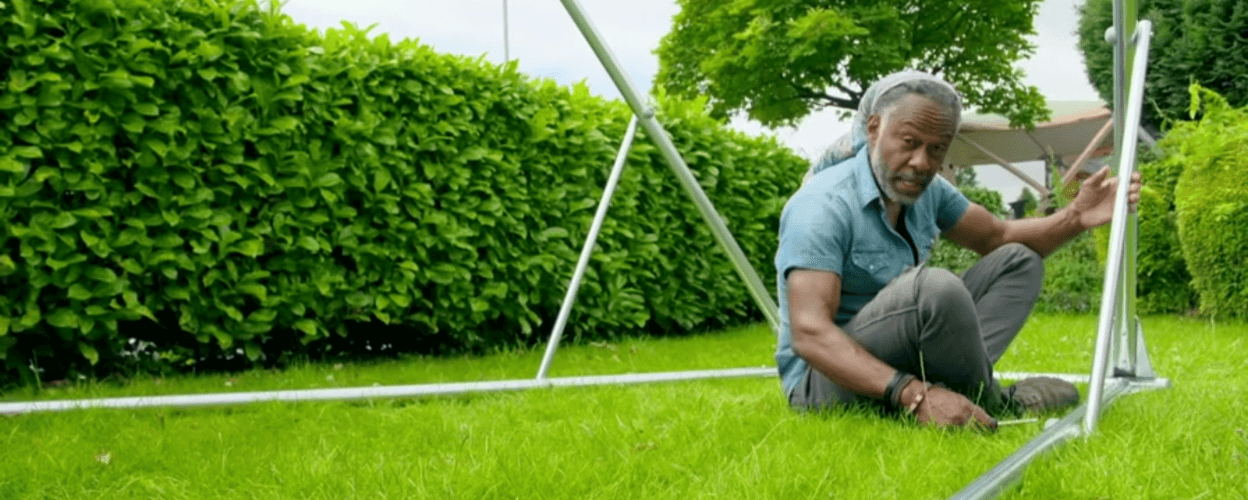
The Design
Alongside calming water features, an aesthetic folly, and blooms of sweet-smelling flowers sits a circular play space with a special sensory swing in its centre – one of Amelia’s favourite pastimes!
Surrounded by dreamy plants, the swing is bathed in a magical fairy-tale glow, perfect for stimulating Amelia’s imagination and offing a calming space for her to explore her senses.
Swings and their rhythmic motion provide relaxing vestibular stimulation that will help Amelia become more comfortable and confident in her body, helping her in her personal and physical development.
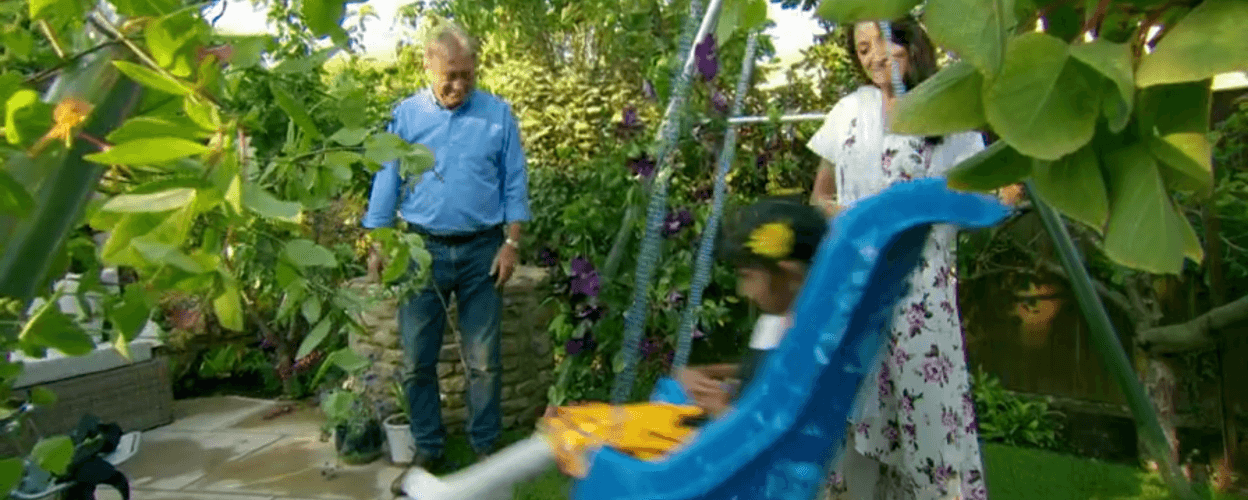
Overall
Overall, Amelia’s garden transformation was an incredible success. Watching her face light up as she and her mum explored their new garden was as magical as the space itself.
We’re really proud to have played our part in supporting Amelia’s sensory journey.
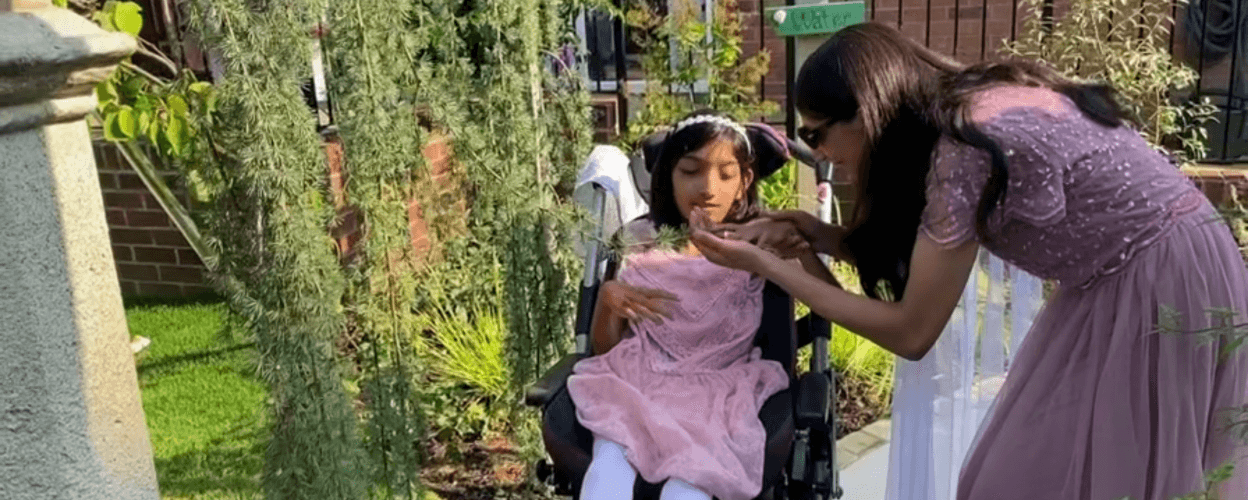
Discover More
- Explore our Swings Collection: https://www.rhinouk.com/sensory/sensory-integration-movement/vestibular-swings/
- Discover our Sensory Gardens Collection: https://www.rhinouk.com/rooms/outdoor-sensory-areas/
- Find out more about Love Your Garden: https://loveyourgarden2.wordpress.com/
- Read more about Amelia’s Garden Project: https://loveyourgarden2.wordpress.com/get-the-look/get-the-look-2021/get-the-look-wakefield-tuesday-21st-december-2021/
- Watch the full Love Your Garden episode: https://www.itv.com/hub/love-your-garden/2a1173a0089
